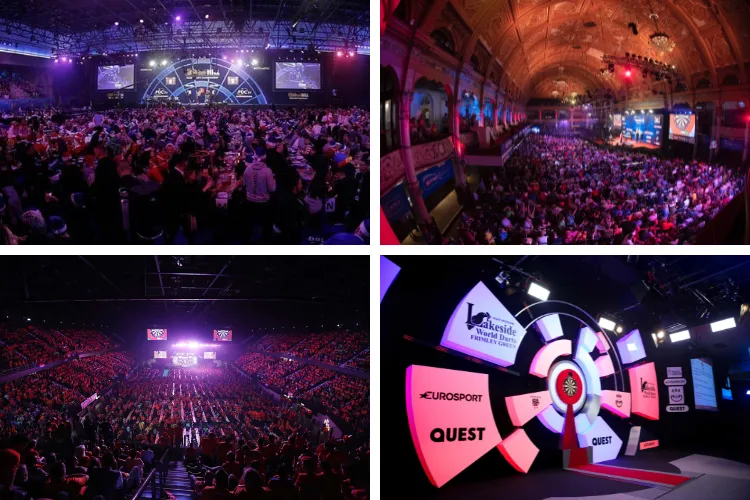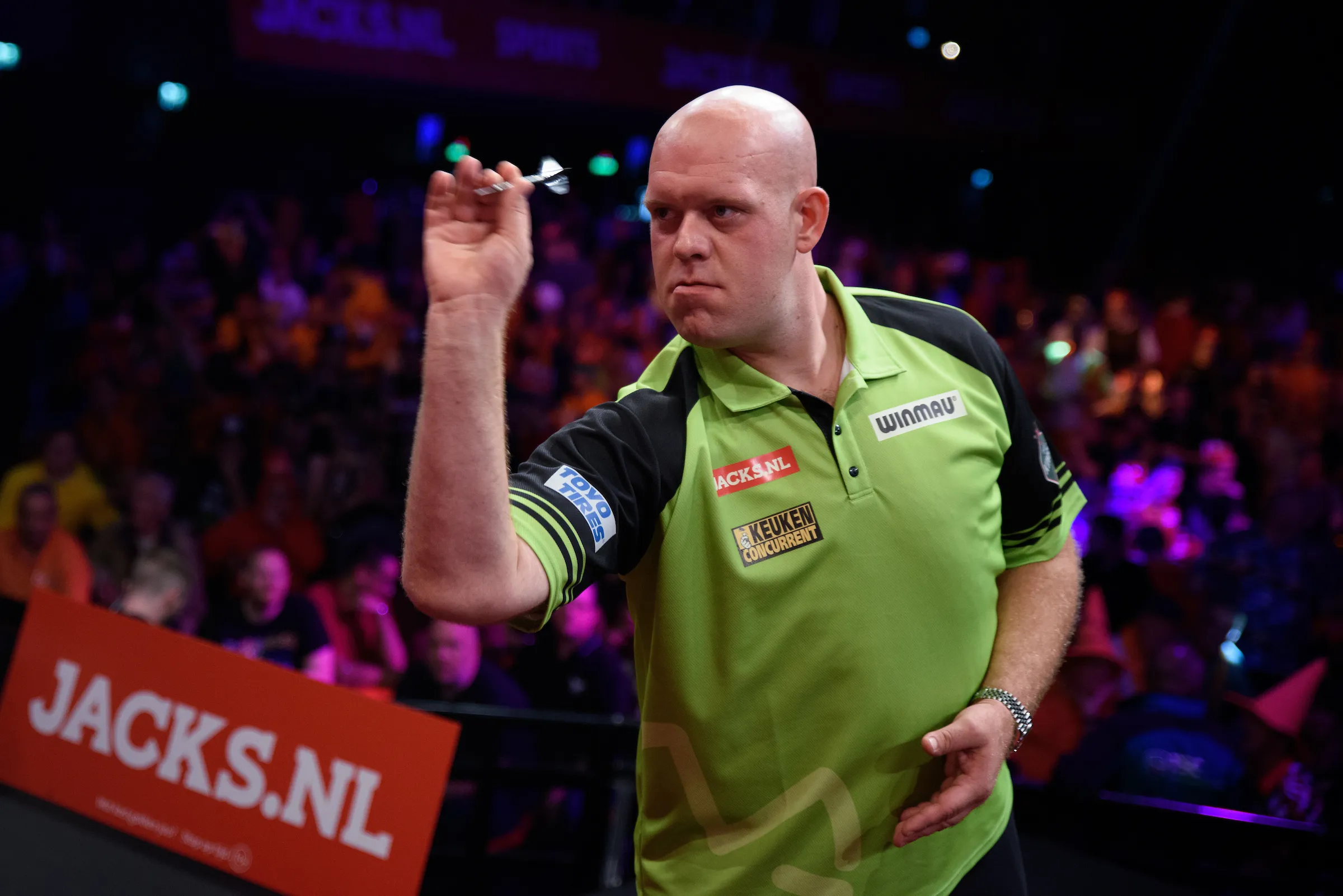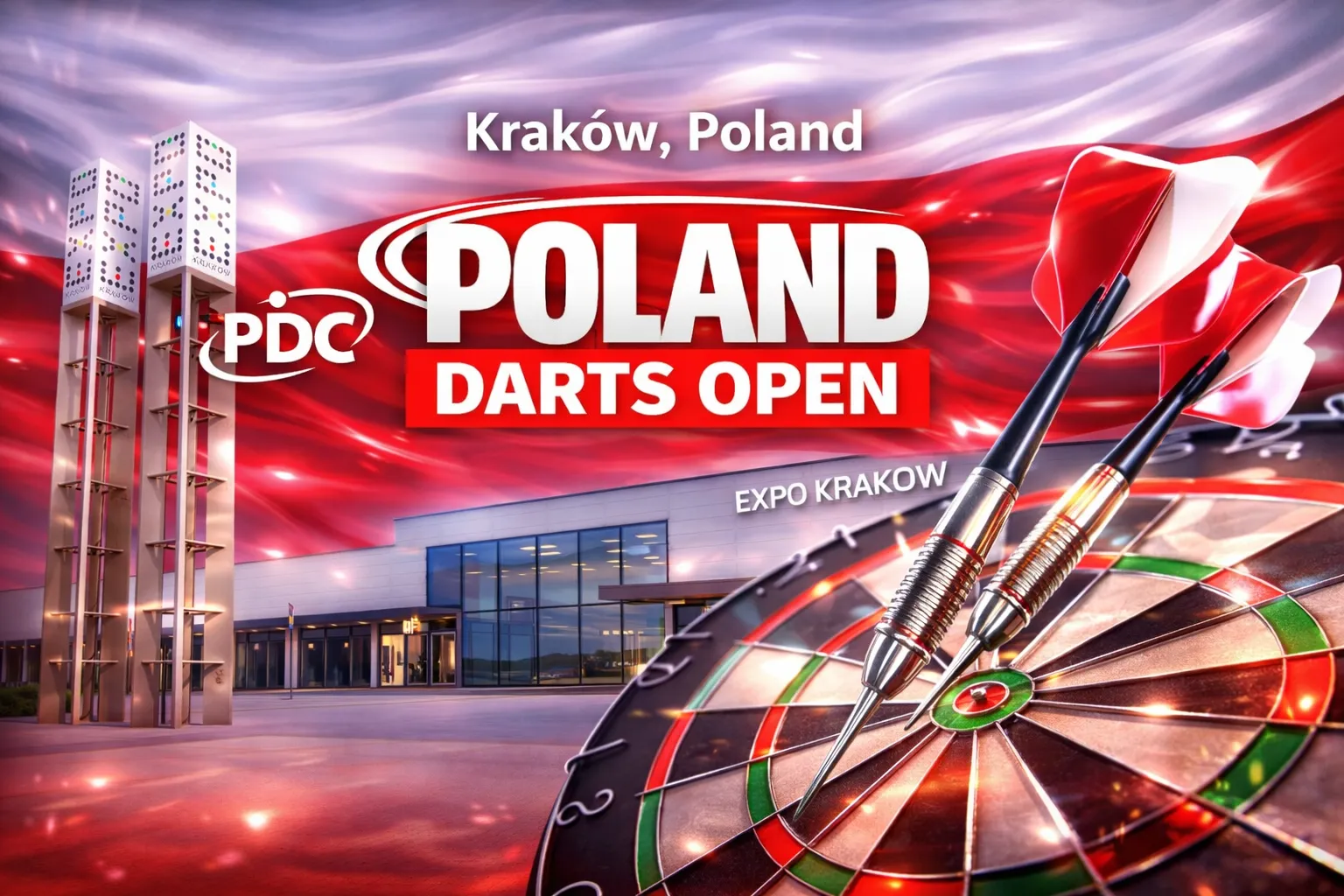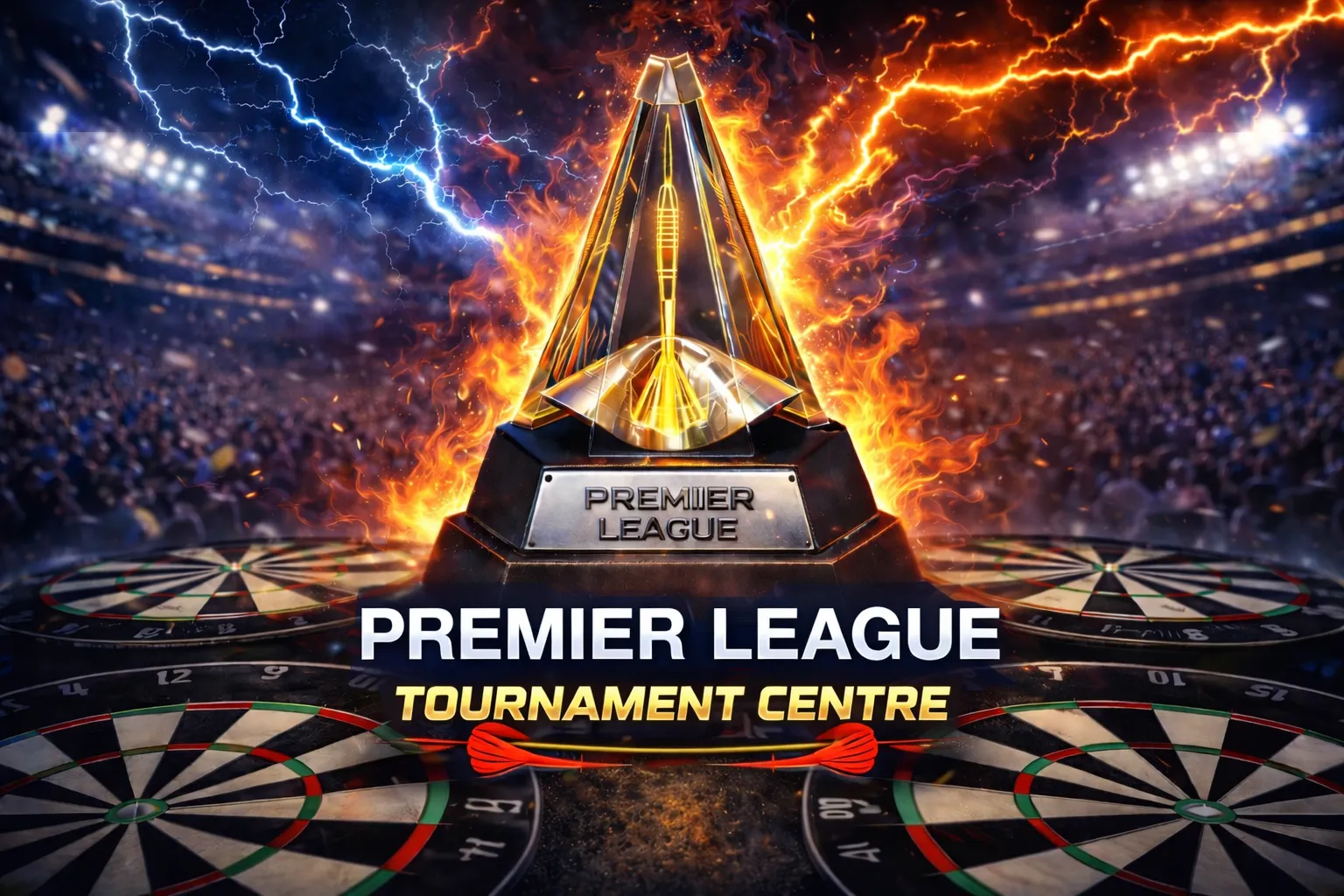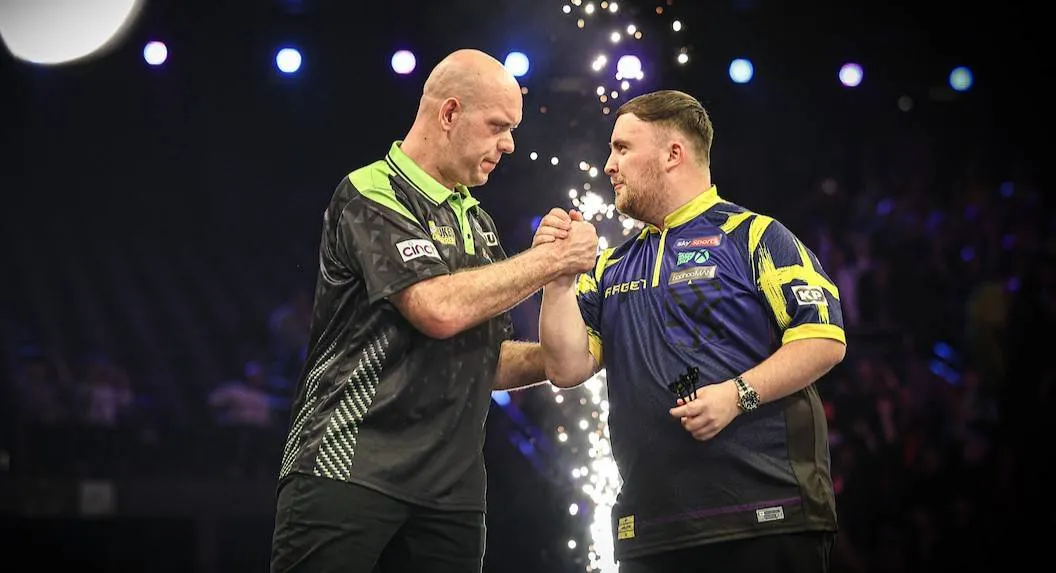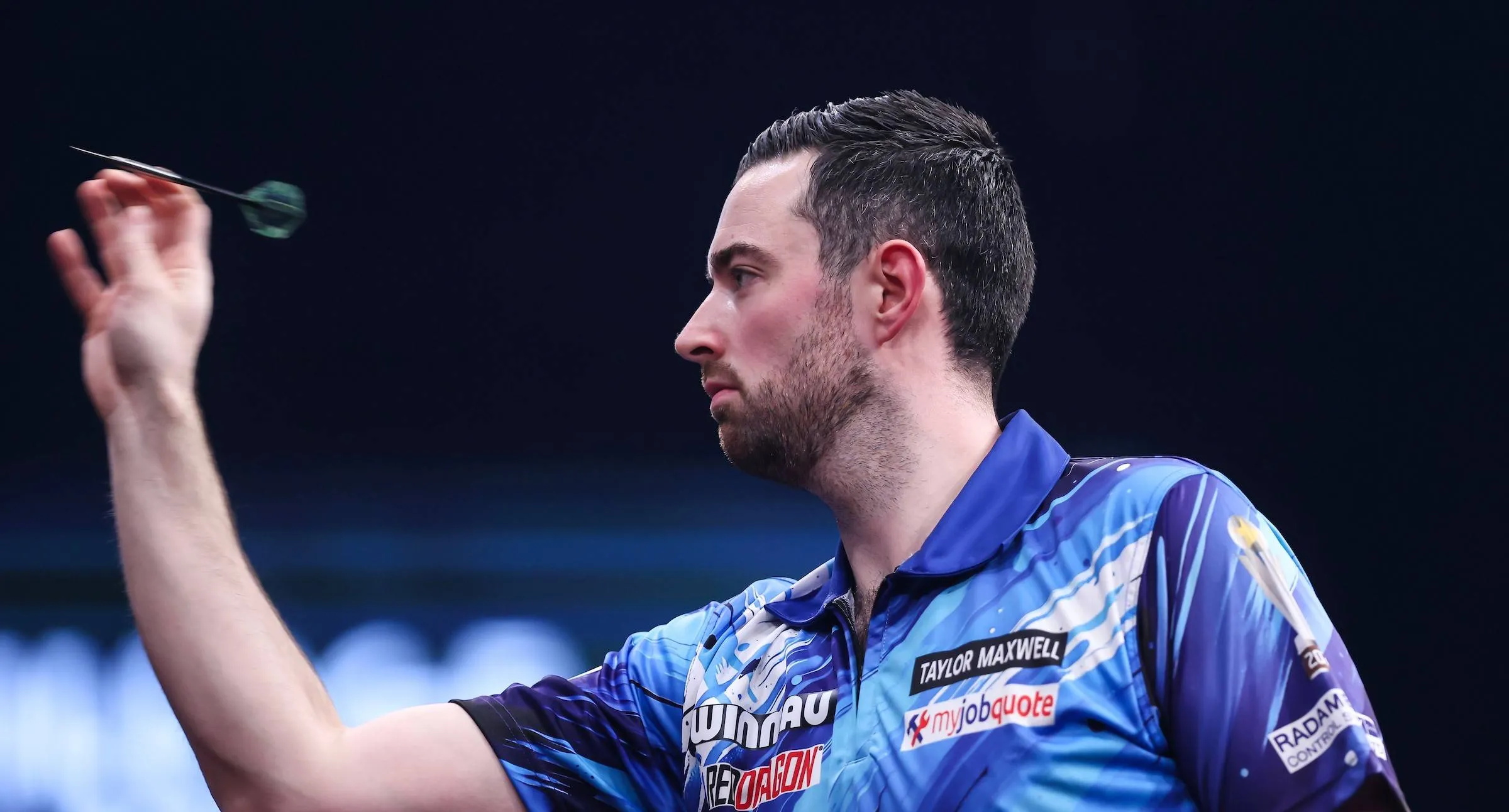The evolution of professional darts: From pub game to global sport
OtherSunday, 25 August 2024 at 14:49
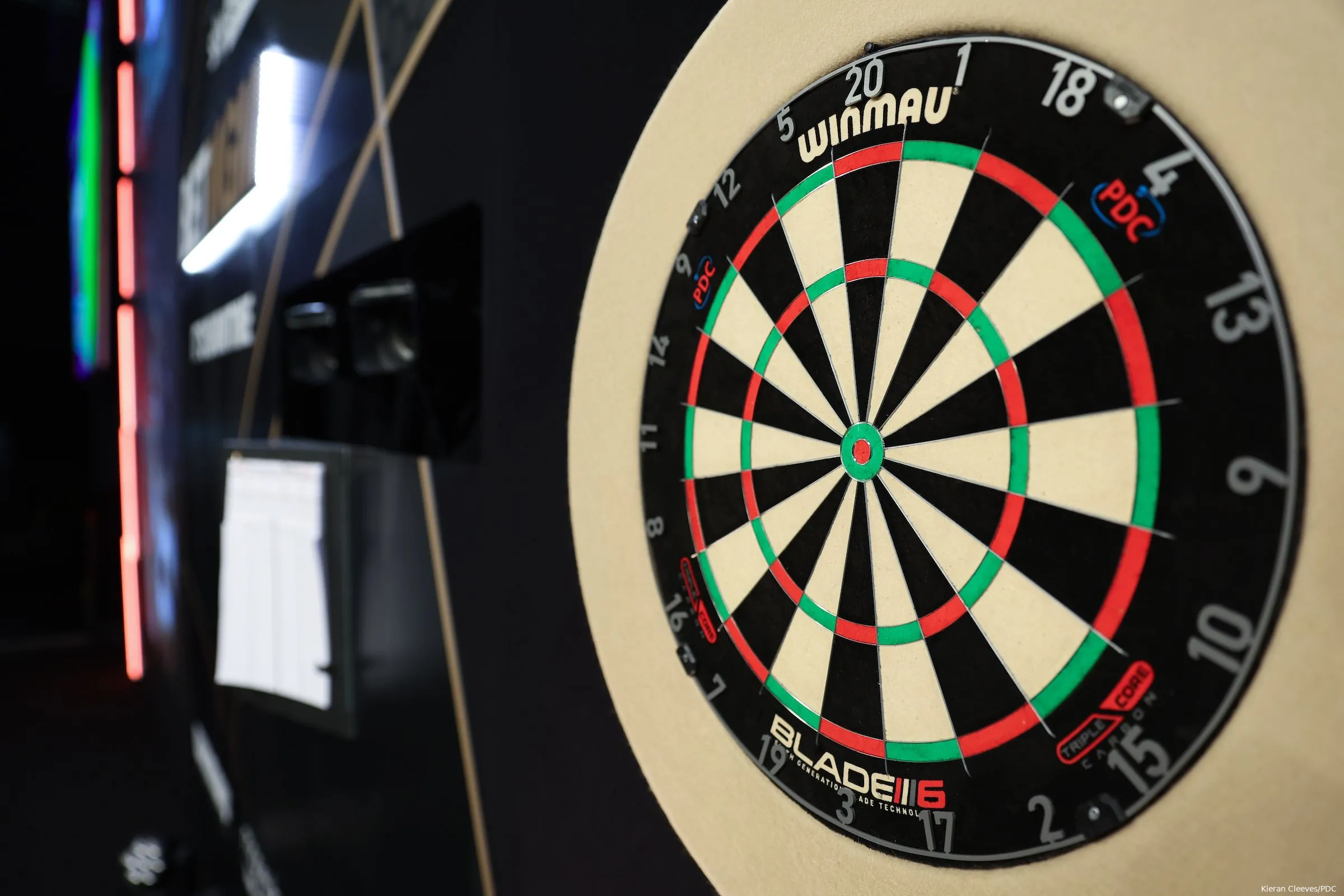
Darts has long been associated with British pubs, but its journey from local pastime to a globally recognized sport has been remarkable. The transformation of darts into a professional, competitive sport with large-scale televised events has created legends and attracted fans from all over the world.
But how did this evolution come about? In this article, we explore the key moments, players and organizations that shaped the modern game.
The origins of darts
The origins of darts go back several centuries and probably began as a military pastime. Soldiers threw arrows at the bottom of barrels, which eventually led to the making of targets. Over time, this casual activity evolved into a more organized game, with boards being standardized. The traditional dartboard, with 20 numbered sections, was probably developed in the early 20th century.
Read also
The growth of pub culture
Darts really became an integral part of British culture thanks to its presence in pubs. In the 1920s and 1930s, leagues were formed throughout Britain, giving the game a structured form. By the 1970s, with the advent of color television, darts found its way into millions of living rooms. Television played a crucial role in popularizing darts, as people began to recognize iconic players and memorable moments.
The formation of professional leagues
In 1992, a crucial split occurred in the darts world. A group of players broke with the British Darts Organization (BDO) because they were dissatisfied with the way the sport was being run. This group of players formed the World Darts Council (WDC), now known as the Professional Darts Corporation (PDC). This split paved the way for the modern era of darts, with the PDC introducing tournaments with higher prize money and more television rights.
Legends of the game
The professionalization of darts led to the rise of some legendary figures. Eric Bristow, known as "The Crafty Cockney," was one of the first superstars to dominate the game in the 1980s. The same era also saw Bobby George play, who was also considered one of the sport's first big personalities.
Following in their footsteps was Phil Taylor, who became the best darter of all time with 16 world titles. Taylor's dominance helped raise the profile of the sport, brought new fans and inspired a new generation of players. Today, players such as Michael van Gerwen, Raymond van Barneveld, Gerwyn Price, Peter Wright, Michael Smith, Luke Humphries, Luke Littler, Gary Anderson and Michael Smith are among the sport's greatest icons.
Read also
The globalization of darts
Although darts has its roots in the United Kingdom, it has since grown into a truly global sport. The PDC's World Series of Darts brings the sport to locations such as Australia, the United States and Asia, introducing new audiences to the game. In addition, players from countries like the Netherlands (such as Raymond van Barneveld and Michael van Gerwen) have risen to the top of the sport, making darts a truly international sport.
The role of technology and media
The growth of darts can also be attributed to advances in technology and media. Professional broadcasting, live streaming and the use of social media have allowed fans to engage with the sport in new ways. The introduction of statistics, player profiles and in-depth analysis during broadcasts has enhanced the viewing experience. The "walk-ons" have become a spectacle in themselves, with players choosing personalized entrance music, building their own brand.
The modern darts scene
Today, the PDC is the premier darts organization, with a packed calendar of events featuring major tournaments such as the World Darts Championship, Premier League Darts, World Matchplay, World Grand Prix and Grand Slam of Darts. Prize money has skyrocketed. Today, the winner of the World Championship collects the top prize of half a million pounds in prize money. Players are now full-time professionals with sponsorship deals and the level of competition is higher than ever.
The future of darts
Looking ahead, the future of darts seems bright. The sport continues to attract new talent, with younger players such as Luke Humphries, Luke Littler, Gian van Veen, Dimitri van den Bergh and Josh Rock creating furor. The expansion into non-traditional markets suggests that darts could continue to grow globally. In addition, the PDC's efforts to develop the women's game with initiatives such as the Women's Series show that there is still plenty of room for growth.
From humble beginnings in British pubs to packed arenas around the world, darts has come a long way. The combination of skill, drama and entertainment has made it a unique sporting spectacle. As the game continues to evolve, it will be fascinating to see how darts evolves in the years to come.
claps 4visitors 1
Just in
Popular news
Latest comments
- So,it's a rubbish league,waste of time. Just put 8000 people in a building every Thursday,get them all drunk,and wonder why it's a complete joke. And forget every other player apart from 8. It's a ridiculous,inane,and needless so called competition.rick6718-02-2026
- Sorry,I've never been a professional darts player,but obviously from your comment,you have. So, going to your reply, you're blaming the management,not the player? So in that respect,he should get a different manager? That's basically all your comment is saying. Don't let him do money makers,which Barney said is easy money, instead of tournaments? Shake hands instead of trophies? Well I guess the manager knows best,as he has a big cut!rick6716-02-2026
- Sorry Mr rick67, erm what punditry credentials do you have to comment on a pundit? There's a reason why many top professionals have management teams. They know how to manage schedules etc so the players can just play. And how is Edgar wrong? Last year MVG failed to qualify by missing too many tournaments and underperforming. He's repeating the error this year so Edgar is right In calling this out.BandB15-02-2026
- Just get of Mardle,I didn't pay to watch him,and I don't want him for free! Let's see,how many world champions,either code,did you win? None! Now mason does it more as a player who was a floor player than you were putting pineapple on your shirt. Mardle,just go,you over inflated ego may follow. Tell you what,get on the seniors tour,and show everyone how good you weren'trick6715-02-2026
- Sorry Mr Edgar,erm what have you actually won to comment? Mvg has had his issues,but you have won a grand total of what? I make that nothing. So how can your comment be justified? Let him do what he likes,you do what you like, and we'll see what you win nextrick6715-02-2026
- Seems to be having a moan for no reason and using “Do-Gooder” as an insult makes no sense. It literally means someone who does good things!Wonker12-02-2026
- Mickey Vs mensur for the world champion? It's starting tomorrow,finishes in January!!rick6711-02-2026
- Oh well that's it then. Both these goofs will expect and demand premier league darts next year after this.richieburnettrocks10-02-2026
- Sincere apologies to Richie, I forgot yesterday, slightly belated but Happy Birthday to the great man. Certainly looking good for 59richieburnettrocks08-02-2026
- He's a nice bloke. He's sort of portrayed as a villain,but he isn't. He plays with heart. Sure he's had issues with the crowd,who are mostly in drink,and some players,but which player hasn't? Littler will have to get used to booing,the crowds always get fed up with consistency. However,Humphries won't have that problem,he's a top bloke too,humble.rick6708-02-2026
Loading
